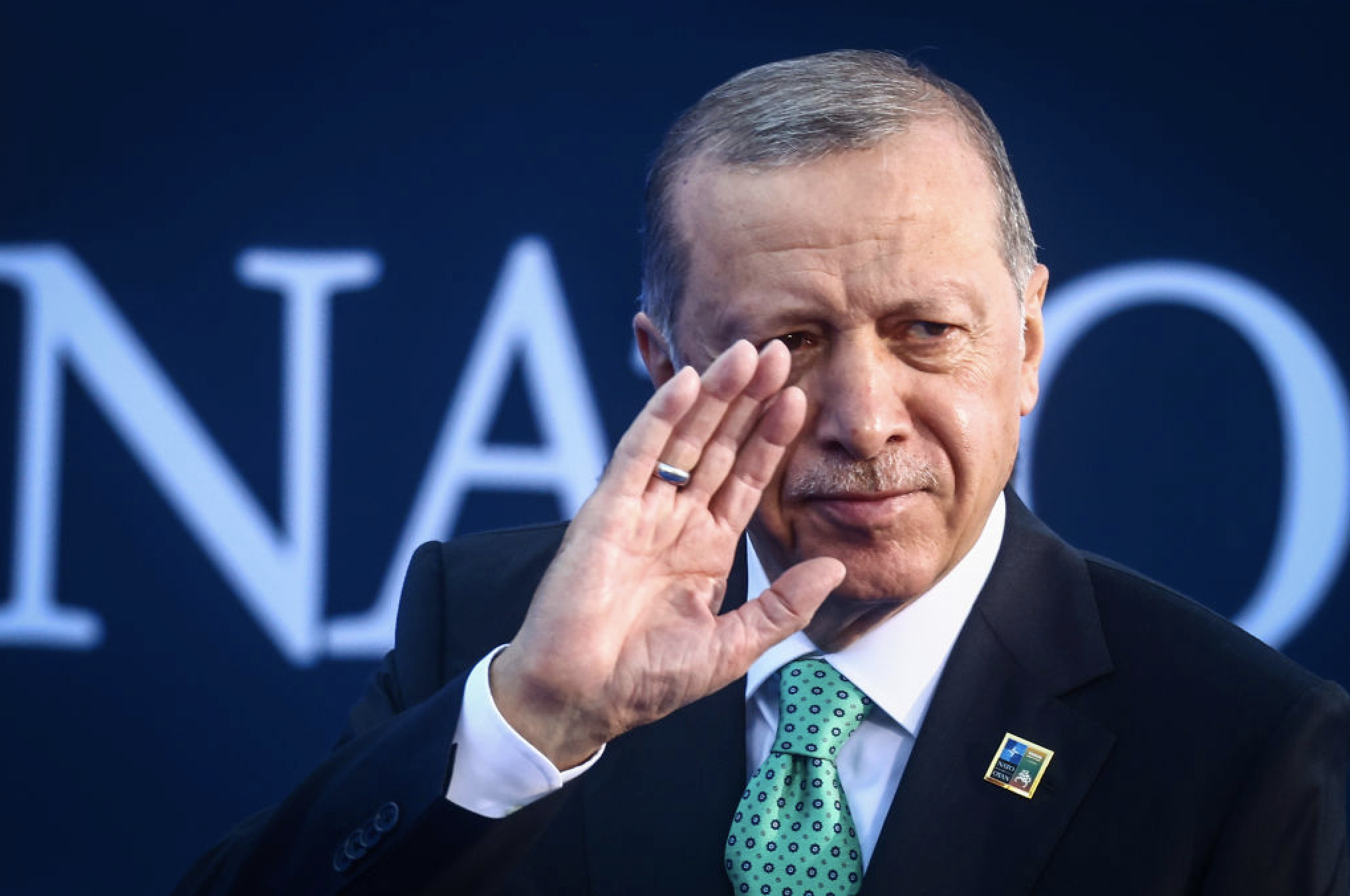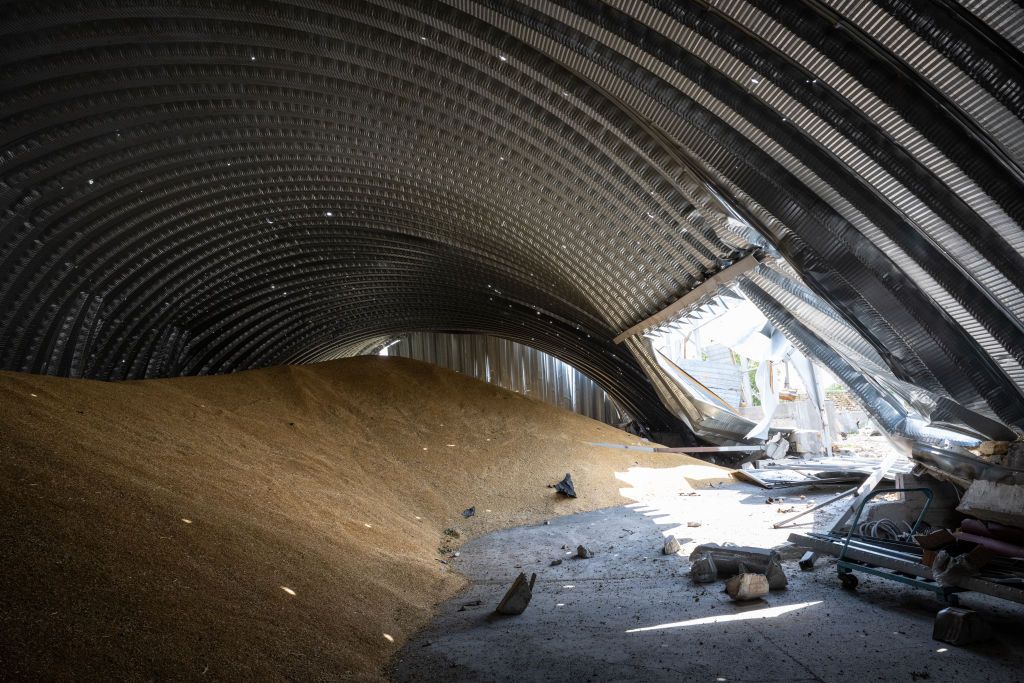Timothy Ash: Solutions need to be found for grain exports

On July 17, 2023, Russia pulled out of the Black Sea Grain Initiative. The initiative was originally brokered in August 2022 by Turkey between Russia and Ukraine. It had been successful in facilitating the export of 32.5 million tonnes of grain out of Ukrainian ports, leaving in over 1,000 ships.
These exports helped provide critical balance of payments support to Ukraine – well over $10 billion – and had helped to turn global grain prices lower from the peaks seen in the immediate aftermath of the all-out Russian invasion of Ukraine, thereby providing cheap food to the world’s poor.
Various explanations have been given as to the Russian decision to pull the plug on the deal, ranging from retaliation for recent claimed Ukrainian attacks on the Kerch Bridge, to Russian annoyance with Turkey’s decision to release key Azovstal commanders to Ukraine, Turkey’s supply of drones and armaments to Ukraine, and it’s decision at the Vilnius summit to green light Sweden’s NATO membership.
Russia itself has argued that the grain deal failed to deliver on its objectives of facilitating improved food and agricultural exports out of the region, and that Ukraine has been exploiting the agreement to facilitate military shipments into Ukraine.
Few of the above arguments stand to muster.

In linking Russia’s decision to Turkey’s actions, it’s notable that Russia has for many months been limiting grain shipments out of Ukraine – slowly turning the screw. Note here that in the months immediately after the signing of the original deal, 180 ships a month were leaving Ukrainian ports loaded with grain, but this had slowed to just 33 in May, 38 in June, and six in the first half of July. Irrespective of Turkey’s actions, Moscow had clearly already decided to limit grain shipments out of Ukraine.
With respect to the idea that the deal was not working for Russia in terms of its agri-food exports, this is clearly also not true, as over the past year, Russia has posted record grain exports.
Meanwhile, there is no evidence that Ukraine has managed to use the grain deal to facilitate the shipments of arms to its military – indeed, the agreement is notable by the extensive searches that Russia has been allowed to undertake of ships leaving Ukrainian ports under the deal. Russia had in fact slowed the inspection of such vessels, seemingly to slow exports of grain from Ukraine.
Indeed, rather the weight of evidence is that Russia was looking to sabotage the deal, well before formally pulling out on July 17 – therein see the messaging and commentary from the Kremlin in the weeks leading up to the formal Russian exit from the initiative.
So what are the real reasons for Russia pulling the plug on the Black Sea Grain Initiative?
First, likely Russia was just trying to further damage the Ukrainian economy, and starve it of much-needed hard currency export receipts. The deal had proven to be too succesful, at least from a Russian perspective, in facilitating Ukrainian grain exports.
Second, likely Russia wanted to extract leverage in any new round of negotiations to get the grain deal back on track – to extract concessions such as broader sanctions moderation.
Notable therein that Russia has asked for the state owned Russian Agricultural Bank (RAB) to be reinstated to the SWIFT financial system. Russia has argued that RAB's disconnect from SWIFT is hurting food and agricultural exports, particularly to the Global South. As above though note Russia’s record levels of grain exports, and the fact that there are plenty of other Russian banks that are still connected via SWIFT, and that can facilitate this agri-food trade.
More likely, this drive for sanctions moderation, linked to new negotiations over the future of the grain initiative, is a reflection of the tightening sanctions noose around Russia as seen in lower trade surpluses – actually in June Russia posted a current account deficit - and larger budget deficits. Signs of increasing Russian economic difficulties are now being seen in the weakening of the ruble, rising inflation and the decision in response by the grain deal to hike policy rates last week by 100bps.
Third, after his humiliation with the Wagner mutiny, Russian President Vladimir Putin likely wanted to use stopping the BSGC as a means to change the news cycle in his favour to an agenda where he can again push the line that he has leverage and that all sides have to talk and negotiate with Moscow. He is trying to project power and force again, and recapture initiative lost in recent weeks.
So what are the solutions here?
First, what are the prospects for the resumption of shipments from Ukraine’s Black Sea ports?
One could obviously concede to Russian demands for sanctions moderation – allowing access of RAB to SWIFT, and there has been talk of Russia wanting to open back up a ammonia export pipeline for export through the Black Sea.
But the above would be sending the signal that aggression pays, and I think is unlikely to be agreed by Ukraine or the West – especially as RAB access to SWIFT will have little impact on Russian agri-food exports to global markets.
Assuming no compromise agreement with Moscow on the sanctions front, there has been talk of NATO and/or Black Sea littoral states running grains convoys from Ukraine to export markets through the Black Sea. This has driven much fraught discussion about the technical/military issues around this and the risks that this poses of a NATO-Russia direct conflict.
Such a convoy system could well work, and recent experience with Russian red line setting around Russia’s war in Ukraine is that Putin does not want to get involved in a direct conventional war with NATO which likely would be short, with Russian forces suffering catastrophic defeat.
NATO could well run such a convoy system, as the U.S. did in the Gulf in the 1980s to counter threats from Iran to oil tankers. It could work and, in reality, Russia would likely be forced to back off – fearful of a direct conflict with NATO and also losing the PR war further over its actions to hurt the Global South by hitting the food supply chain.
However, Russian military action in recent days seems aimed at destroying as much grain export infrastructure on Ukraine’s three still-operating Black Sea ports. Grain elevators, storage facilities, and dock facilities have been destroyed. Kernel, a large Ukrainian agricultural enterprise with a large grain production and export business, has recently signaled that destroyed grain shipping infrastructure could take as long as one year to rebuild.
The longer the inaction by Ukraine’s allies to stop Russian attacks, the more of this Black Sea port infrastructure will be put beyond use, making the prospect of any such naval convoy to protect export routes largely academic, as Ukraine will simply lack the infrastructure to transport, store, and then load grain on to ships.
One should perhaps think of actions now by Western allies to halt Russia’s bombardment of Ukrainian grain shipment facilities – military action, sanctions etc. Efforts thus far appear focused on providing improved air defense systems, but these are in short supply and will take time to deploy – by which time Ukraine might have suffered the catastrophic loss of its ability to ship grain by Sea through the Black Sea.
Notable in all this is that the Global South, the recipient of much Ukrainian grain exports, has been relatively quiet in response to Russian attacks on Ukrainian grain shipment infrastructure. Likely this relates to the current relatively low global prices for grains, at least relative to last year’s highs, and Russian efforts to assure that it will pick up any shortfall for the Global South either on commercial or a gratis basis. They simply don’t rock the boat – no pun intended.
Second, and assuming no early solution to the issue of the Black Sea route, the question is how can alternative export routes be better utilized or expanded?
Ukraine has capacity still to export around 2.5 million tons of grain a month through Danube ports, around 1 million tons a month by rail, and between 600,000 and 800,000 tons a month by road. Capacity through Danube ports could potentially be raised by another 1 million tons, which could go a long way to fill the shortfall from the loss of the Black Sea route.
However, note that Russian attacks have extended also to Danube port infrastructure with recent attacks on the ports of Ismail and Reni. Unless action is taken quickly by allies then the Danube route might also suffer the same fate as its Black Sea alternative.
Even the road and rail routes are currently constrained by the EU agreement reached in early May to limit Ukrainian grain exports through five eastern European states, including Hungary, Poland, Slovakia, Romania, and Bulgaria – for fear of flooding these markets with Ukrainian produce and depressing market prices for their own farmers.
As part of this deal, exports by rail were cut to 600,000 tons a month by rail and just 200,000 tons a month by road. This latter agreement ends in mid September, but with elections due in Poland in November, and with the rural vote likely key, there will be pressure on the EU to extend the agreement, unfortunately to the detriment of Ukraine.

Solutions within the EU are to think of road and rail options which enable the transit of Ukrainian grain to markets beyond the EU, or at least beyond neighboring states.
One solution is to boost rail export routes to ports in Lithuania and the Baltics but this will require significant investment in railways to change the gauge of tracks to meet European standards. Investments will also need to be made in storage facilities nearer to routes West – but prior investments were stalled after the agreement reached with the five East European countries in June to restrict grain exports from Ukraine.
Investments in alternative export infrastructure will take time. Ukrainian farmers don’t really have much time. And notable here that due to lower economies of scale, road and rail freight of grain is just much less efficient than transport in greater bulk by sea. It makes Ukrainian grain production and export much less cost effective and profitable - an overall loss to Ukraine.
Editor’s Note: This piece is taken from Timothy Ash's Substack blog, @tashecon blog, and republished with his permission. The opinions expressed in the op-ed section are those of the authors and do not purport to reflect the views of the Kyiv Independent.














